I want to implement the formula:
#include <iostream>
#include <cmath>
#include <limits>
using namespace std;
int main(){
double a, eps = numeric_limits<double>::epsilon();
cout << "a=";
cin >> a;
double w = sqrt(a), prod = 1 + w;
int n = 1;
do {
w = sqrt(w);
prod *= 1 + w;
cout << "ln(" << a << ")=" << ldexp(a-1, n)/prod << endl;
n++;
} while(abs(w - 1) > eps);
return 0;
}
But e.g. ln(2.78787)=0.512639 and that cannot be true. Where is the mistake?
